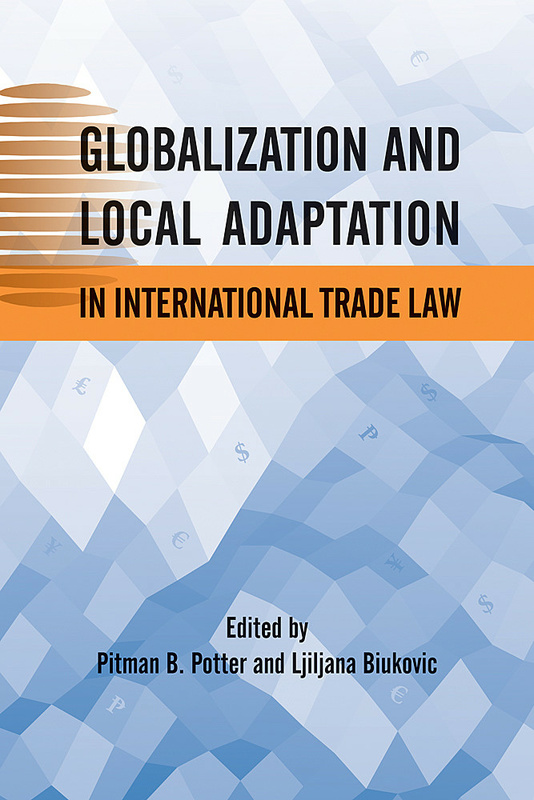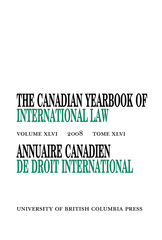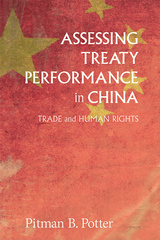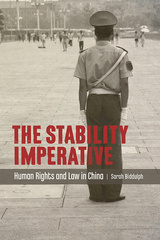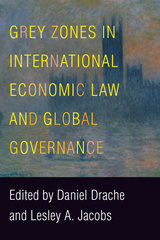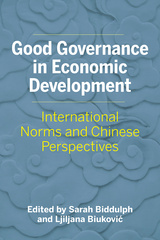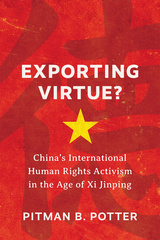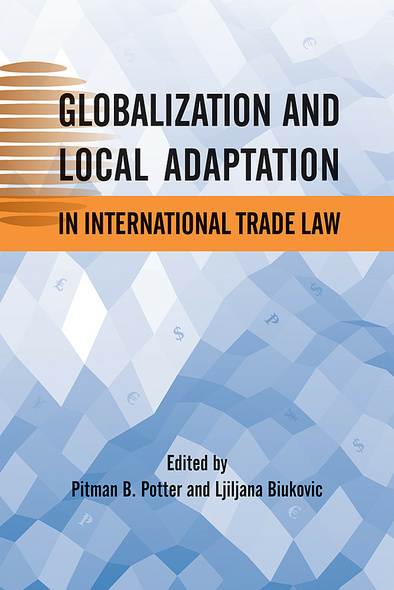
Globalization and Local Adaptation in International Trade Law
The trade principles of Western liberal democracies are at the coreof international trade law regimes and standards. Are non-Westernsocieties uniformly adopting international standards, or are theyadapting them to local norms and cultural values?
This volume presents a new conceptual approach – the paradigmof selective adaptation – to explore and explain the reception ofinternational trade law in the Pacific Rim. It brings together scholarsfrom Australia, Canada, China, and Japan who reveal how the World TradeOrganization’s standards are being interpreted – and insome cases disputed – in selected countries. Building on aconceptual discussion of the normative and institutional contexts forinternational trade law, the authors draw on examples from China,Japan, Thailand, and North America to show that formal acceptance ofinternational trade standards through accession to the World TradeOrganization and the General Agreement on Tariffs and Trade does notnecessarily lead to uniform enforcement and acceptance at the locallevel.
Globalization and Local Adaptation in International TradeLaw provides compelling evidence that non-uniform compliance willbe a legitimate outcome of the globalization of international traderules.
This book will be of interest to students and scholars who want a
better understanding of the development and enforcement of
international trade law and anyone interested in the comparative study
of legal systems.
Awards
- , Commended - The Hill Times List of Top 100 Best Books for 2012
This book adopts a unique approach to understanding the cultural factors that affect the selective adaptation of international norms in some jurisdictions ... The topic is of great importance, and [this book] will contribute to intellectual debates on treaty implementation and to the general field of international trade law.
Pitman B. Potter is the Hong Kong Bank Chair inAsian Research at the Institute of Asian Research and a professor oflaw at the University of British Columbia.
Ljiljana Biukovic is an associate professor of lawat the University of British Columbia.
Contributors: Emma Buchte, Julian Dierkes, WenweiGuan, Maomi Iwase, Devin McDaniels, Kathrine Richardson, MayumiSaegusa, Richard Schwindt, Wang Shuliang,Yoshitaka Wada, LiaoZhigang
Preface
Part 1: Concepts and Methods
Introduction: Selective Adaptation, Institutional Capacity, and theReception of International Law under Conditions of Globalization /Pitman B. Potter
Global Competition Governance: A Step towards Constitutionalizationof the WTO / Ljiljana Biukovic
Methodology and Current Research Directions in Cross-CulturalConflict Resolution / Emma Buchtel
Part 2: Local Implementation of GlobalStandards
Globalization and Local Culture in Contracts: Japanese Companies inThailand / Yoshitaka Wada
NAFTA, Labour Mobility, and Dispute Resolution within a NorthAmerican Context / Kathrine Richardson
The TRIPS Agreement and New Developments in IP Law in China /Liao Zhigang
Competition Policy, Capacity Building, and Selective Adaptation:Tentative Lessons from Japan's Experience with Anti-Cartel Policies/ Richard Schwindt and Devin McDaniels
Selective Adaptation of Economic Governance Norms in China:Transparency and Autonomy in Local Context / Pitman B.Potter
Part 3: Case Studies on Dispute Resolution
International Dispute Resolution in Japan: A Combination of Judicialand Other Systems / Maomi Iwase
Introduction to International Trade Dispute Settlement in China /Wang Shuliang
Alternate Dispute Resolution in Japanese Legal Education:Preliminary Evidence from the 2003 and 2004 Curricula / MayumiSaegusa and Julian Dierkes
A Comparative Study of Olympic Marks Protection and Beyond: Canada,the United States, and China / Wenwei Guan
Conclusion: Reaching Normative Consensus in International Trade Law/ Ljiljana Biukovic
Contributors
Index

